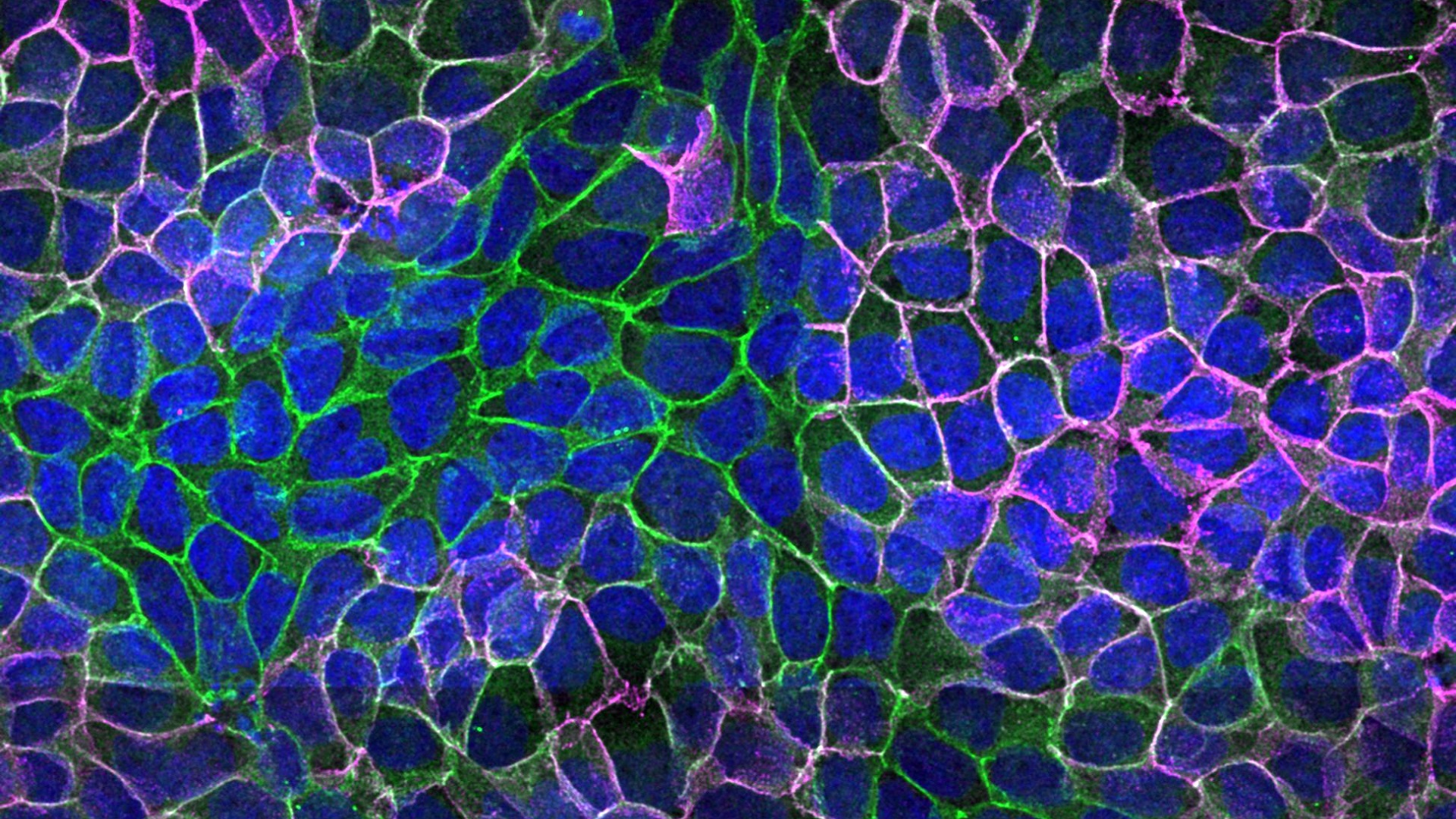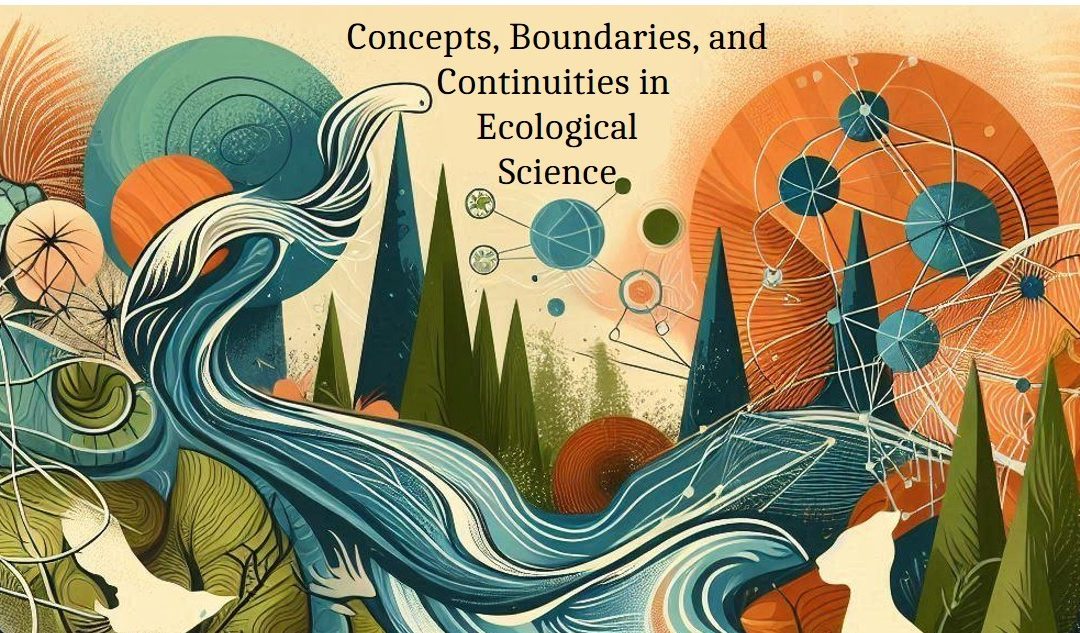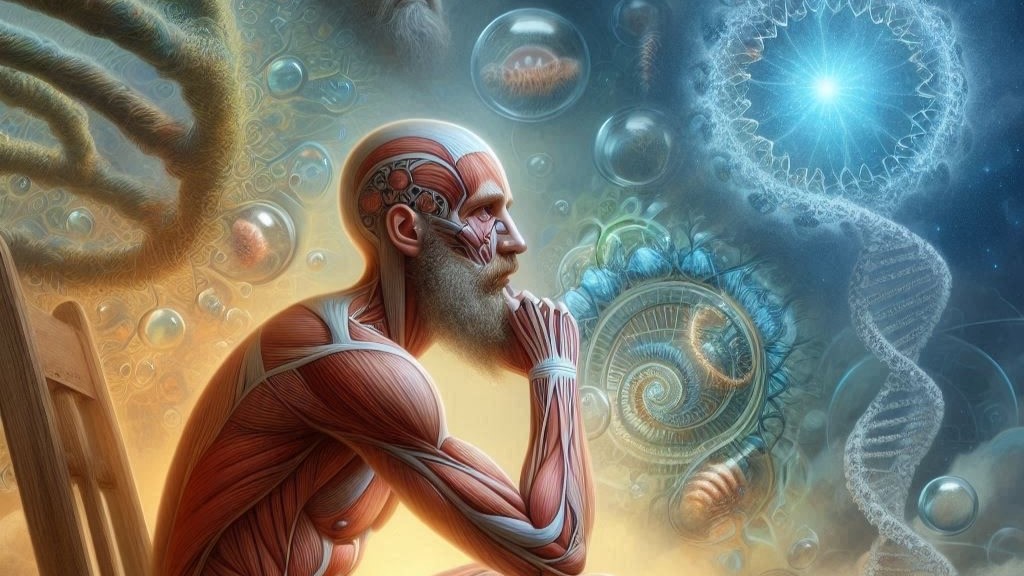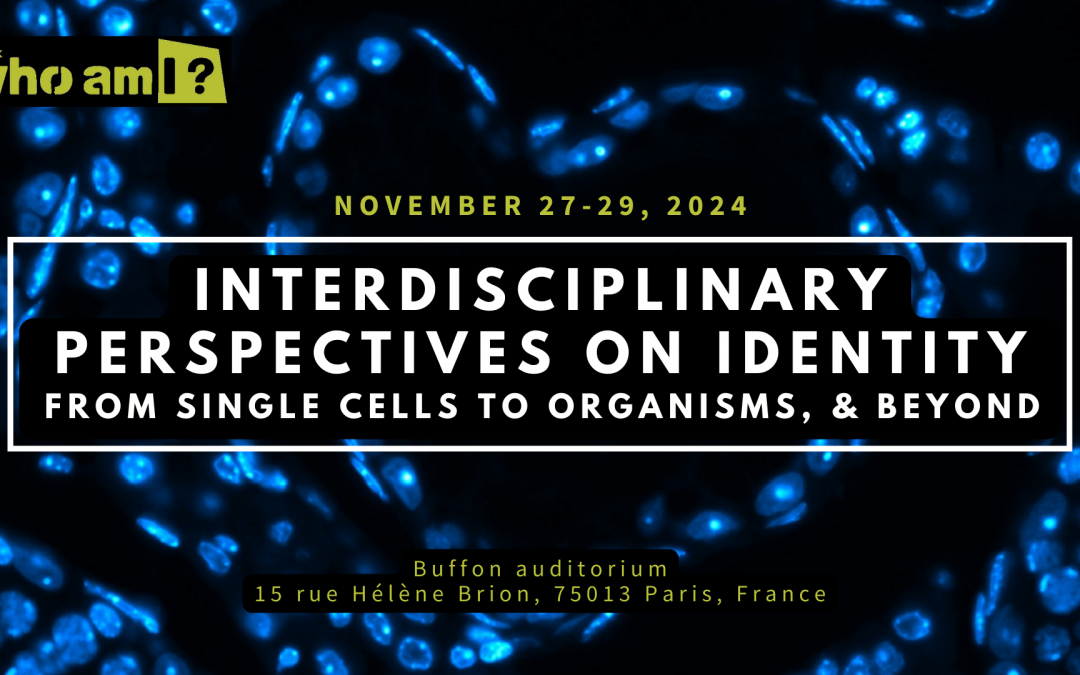Programme Thématique
Ce programme est dédié au financement des projets de recherche propres aux équipes partenaires du Labex. Avec un budget de 2 M€, ce programme répond aux besoins des équipes en offrant la possibilité de recruter un personnel pour 2 ou 3 ans, pour des projets en lien avec les axes de recherche de Who Am I?.

Compétition cellulaire
Mélange de cellules MDCK WT et E-cadherin KO après 7 jours en culture, marquées pour la Cadherin6 (vert), E-cadherin (magenta) et les noyaux (bleu).
© Lakshmi BALASUBRAMANIAM, Institut Jacques Monod
Cet appel d’offre, unique au cours de la période de renouvellement, a été lancé en novembre 2020. Parmi les 44 projets soumis, 17 ont été sélectionnés par le Conseil Scientifique et le Comité Exécutif :
- Systematic pre-symptomatic screening of hereditary pathologies : ethical and psychological issues and construction of collective reflections, porté par Marco Aradena, Centre de Recherche Psychanalyse, Médecine et Société
- Molecular bases and biological functions of centriole rotational asymmetry in human cells, porté par Juliette Azimzadeh, Institut Jacques Monod
- Coupling identity dynamics and equilibrium across scales: A role for cell density perception in tissues, porté par Nicolas Borghi, Institut Jacques Monod
- Elucidating the proximal origin(s) of SARS-CoV-2, porté par Virginie Courtier, Institut Jacques Monod
- Transient and prolonged epigenetic disturbances: effect on cell identity and transformation, porté par Pierre-Antoine Defossez, unité Épigénétique et Destin Cellulaire
- Small RNA-guided heterochromatin formation during genome editing in Paramecium, porté par Sandra Duharcourt, Institut Jacques Monod
- Identification of factors responsible for chromosomal rearrangements with Microhomology-Mediated Insertions at the junction, porté par Josée Guirouilh-Barbat, Institut Cochin
- Mechano-adaptation of cancer cells: understanding the role of VAPA-mediated contact sites, porté par Mélina Heuzé, Institut Jacques Monod
- Genomics and metagenomics: epistemology and ontology of biological identity in the postgenomic era, porté par Philippe Huneman, Institut d’Histoire et Philosophie des Sciences et Techniques
- How actin and vimentin join actions to preserve cell integrity, porté par Cécile Leduc, Institut Jacques Monod
- Deciphering the role of Foxo1 in defining the identity of effector CD4 T cells, porté par Bruno Lucas, Institut Cochin
- Tracking hypermutable cell subpopulations – reservoirs of adaptive genetic variability, porté par Ivan Matic, Institut Cochin
- Role of lysine methylation in cytokinesis and cancer, porté par Souhila Medjkane, unité Épigénétique et Destin Cellulaire
- Nuclear pore-associated translation and the maintenance of nuclear identity, porté par Benoit Palancade, Institut Jacques Monod
- Muscle Induced Differentiation : interplay between Mechanical and Electrical Effects (MIDMEE), porté par Myriam Reffay, laboratoire Matière et Systèmes Complexes
- Study of the DNA repair dysfunction in H3.3-mutated cancers: a new path for therapeutic intervention, porté par Béatrice Rondinelli, unité Épigénétique et Destin Cellulaire
- Emergence of identity in complex ecosystems comprising motile organisms, porté par Julien Tailleur, laboratoire Matière et Systèmes Complexes
À lire aussi

Workshop on Identity in Ecology
Concepts, Boundaries, and Continuities in Ecological Science Date:May 6th 2025 Location: IHPST - 13 Rue du Four, 75006 Paris Organizer(s): Huneman Philippe © Diane Duboué & Copilot Workshop on Identity in Ecology Concepts, Boundaries, and...

Biological identity after the postgenomic turn
12/11/2024 - "While the identity of individual animals and plants has often been understood as based on their genotype, epigenetics and the overall postgenomic turn challenged this belief. In this workshop biologists, ecologists and philosophers of biology will...

Congrès de clôture 2024 – Perspectives interdisciplinaires sur l’identité
Le Labex Who Am I? vous convie à son congrès de clôture « Interdisciplinary Perspectives on Identity: from Single Cells to Organism and Beyond », qui se déroulera du 27 au 29 novembre 2024, à Paris. Nous vous invitons à notre congrès annuel les27, 28 et 29 novembre...

Festival Pint of Science 2024
Cette année, le Labex Who Am I? s’associe à la Faculté des Sciences de Université Paris Cité, à l’École Universitaire Génétique et Épigénétique Nouvelle École (EUR GENE) et au Domaine d’Intérêt Majeur BioConvergence pour la Santé (DIM BioConvS), pour...
